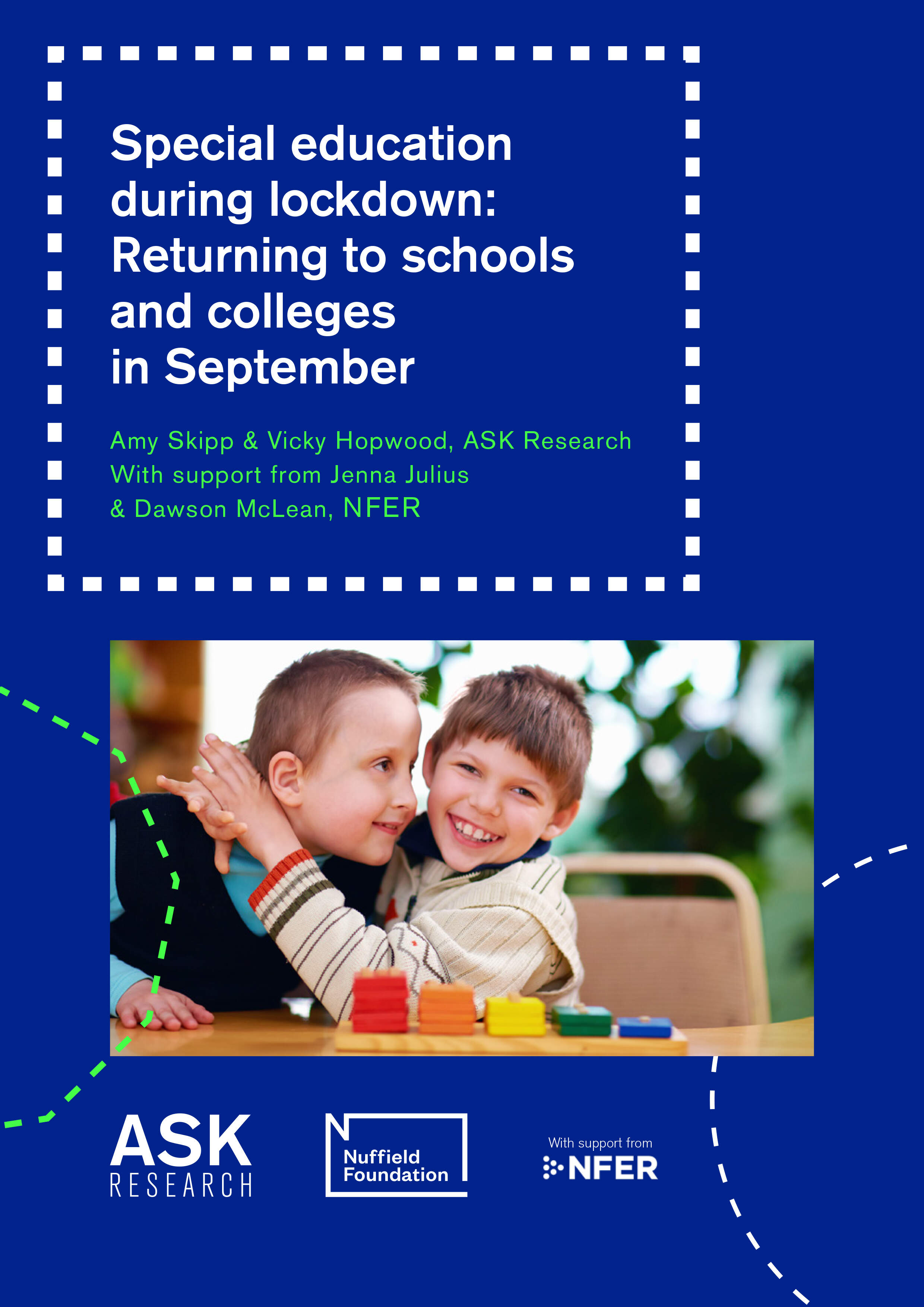Special Education during Lockdown
Families whose children have special educational needs and disabilities (SEND) have faced unique challenges during the coronavirus pandemic. This study, funded by the Nuffield Foundation, explores how education provision over this time has changed for children and young people with SEND who attend special schools.
Our first report from the research details how schools and parents are preparing for the return to education in September 2020.
Read the full report here
Launching the report Amy Skipp, Director of ASK Research, said “From the moment the announcement about school closures was made, the government has got it wrong for special schools and the highly vulnerable pupils and families they support. Heads and parents told us repeatedly how they felt forgotten about. Messages from government and the issued guidance have been so confused for children with special needs that Headteachers have faced an impossible situation over the last few months, which will culminate in tens of thousands of our most vulnerable children and young people not accessing the vital support they rely on from special schools. Parents should not be being asked to choose between their child’s health and their education.
“Many special schools have shown amazing innovation and commitment during lockdown with staff going above and beyond to help these families. Government should learn from what has worked, and reflect this level of commitment by acting now, making specific guidance for these settings and providing the additional resources they will need.”
SEN Support: What works?
The DfE commissioned ASK Research to investigate what effective SEN Support looks like in schools and colleges. Coventry University were commissioned to carry out a rapid evidence review on the same topic. A toolkit was then developed pulling these findings together in a toolkit for school and college practitioners and a summary for leaders.
Delivering EHC Plans
The Department for Education commissioned ASK Research to carry out qualitative research to support local authorities to maximise service satisfaction of those seeking Education, Health and Care (EHC) plans. The research examined the different stages of the EHC process, developed a detailed understanding of local service provision at each stage and identified drivers of users' satisfaction and practical service improvements.
View all the outputs at: www.ehcpjourneys.com
Promoting Traineeships
In collaboration with the Learning & Work Institute and Essex County Council we will be supporting the development of traineeships for learners with SEND, to increase the take-up of supported post-16 vocational provision.
Has anyone thought to include me?
Fathers' perceptions of having a deaf child and the services that support them. This report made several recommendations about how multiagency services should address the needs of dads, which may often differ from those of mums.




